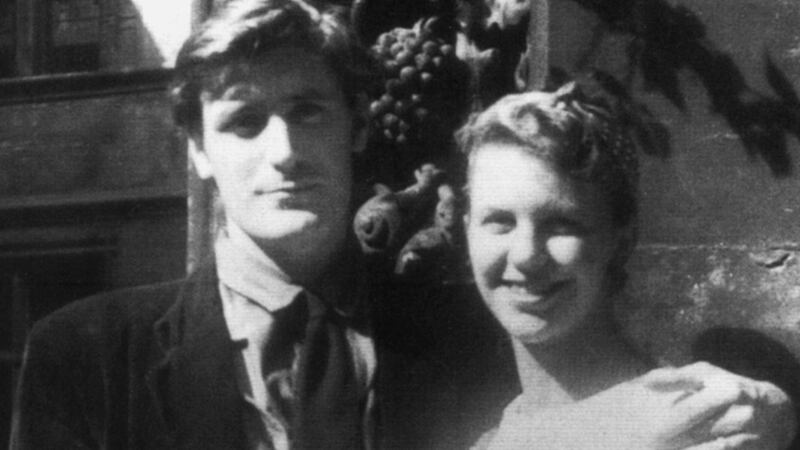Almost everyone I’ve spoken to about the precarious tragedy that was Sylvia Plath’s life and Ted Hughes’ influence has expressed understandable animosity towards the infamous Hughes, an opinion I share. So when a friend of mine disagreed, posing the question of whether ‘Hughes made women mad or attracted mad women’, I found it quite interesting and believed it needed deep consideration.
They had both met in Cambridge. Plath, who had read some of his poems in a magazine, was fascinated by Hughes and his poetry – after meeting at a celebration, they had suddenly found themselves married only a few months later. The controversy that stifled Hughes’s life was his infidelity, consistent throughout their marriage, along with letters later recovered after Hughes’ death from Plath inscribed to Dr Barnhouse, talking about the domestic violence committed against her. Considering these facts, it’s incredible that anyone could make a case for Hughes.
Many misconceptions about their lives developed from the biographies written about Plath after her death. Hughes’ family had a strong influence over her estate, choosing what was and wasn’t included in biographies about her life. This caused many biographies, like “ Bitter Fame,” to damage her reputation, often depicting her as crazed and delusional while acting quite phlegmatic or perfunctory toward Hughes’ infidelity or even failing to mention it entirely. Therefore, my first interpretation was that my friend questioned the animosity towards Hughes due to the inaccurate portrayal of him.
Plath was undoubtedly an intense and controversial person, for her problematic remarks made in ‘The Bell Jar’, like referring to someone as ‘dusky as a bleach blonde negress’, but also some disturbing letters she had written near the end of her life, as some examples. However, writers like Heather Clark, who could write without the Hughes family’s influence – as Ted Hughes’ sister had passed, fewer people cared to maintain his legacy and the family relented, giving Clark literary freedom – were far more understanding of her capriciousness and did an outstanding job at rationalising Plath’s seemingly irrational behaviours. ‘Bitter Fame’ imagines the story of Plath, angry, demanding, and implacable, forcing Hughes and his friends to eat half-filled bowl of lukewarm clam chowder for dinner, simply for going to the pub, whereas Clarks ‘Red Comet’ reimagines the same story of the heavily pregnant Plath being understandably agitated after having been left alone, forced to do house chores and make dinner as Hughes relaxed with his friends. However, through the constant justification of her wild tendencies, Clark’s writings fail to convey how mercurial Plath could be, especially in Plath’s final months.
Some argue that Hughes redeemed himself with his collection of poems, “Birthday Letters”, written as a response to Plath’s suicide, only a few months before his death; I argue too little too late! 13 years of concealing Plath’s poems and letters; and giving little to no response towards the circumstances of her death is hard to be redeemed for. Furthermore, I find Hughes’ poem, “ The Rabbit Catcher” – written as a direct response towards Plath’s poem, sharing the same name, depicting her dejection within their marriage – to be a distasteful and spiteful way of villainising Plath and mocking her tribulations. Of course, others may interpret the poem differently.
Whether Sylvia Plath’s death was a direct response to Hughes’ actions is a far more multifaceted matter. Plath’s final poem, “Edge”, mentioned the idea of the “ illusion of the Greek necessity”, which suggests that she believed her suicide was a certainty or a postcondition to her life, regardless of Hughes’ influence. Moreover, Ted Hughes’ ideology often viewed the interaction between two humans as comparable to two wild wolves meeting in a forest. Suggesting that his actions weren’t immoral or to blame, just nature; and the idea that humans are animalistic and cannot control their nature. However, to me, this seems like an excuse and an attempt to avoid blame, as he “couldn’t control himself”. I don’t believe this could be considered a reasonable or objective justification.
Evidently, after further evaluating the topic, my conclusion remains, and I seldom imagine a future where I don’t see Hughes as the “ villain” of the story. His actions are incomprehensible to me, and his ideologies are controversial at best. However, I’m glad to have had the opportunity to study such a contentious relationship, especially as the constant censorship of her writings and the writings of her life, enforced by Ted Hughes and his family, did her a massive injustice, affecting her legacy to this day.
By Levi Waxley, student






